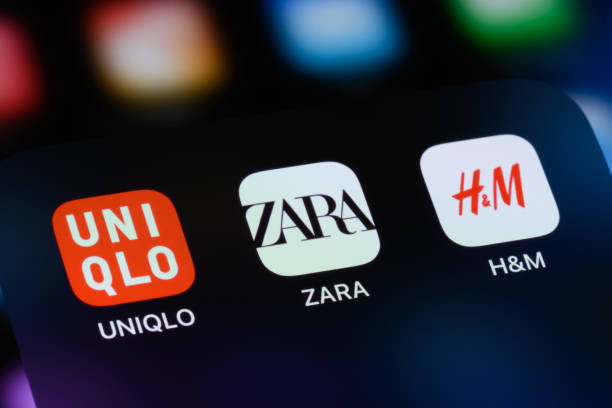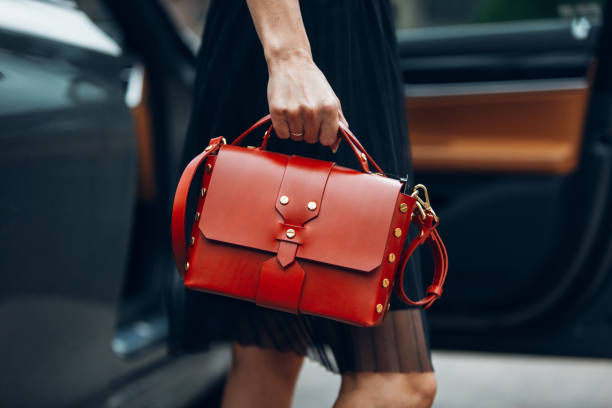As environmental awareness rises, consumers increasingly seek sustainable options. Fast fashion’s environmental toll has pushed many to support eco-conscious clothing brands instead of mass-produced, short-lived apparel.
People want fashion that aligns with their values. Ethical production methods, transparency in sourcing, and reduced carbon footprints now influence purchasing decisions as much as style and price do.
Social media plays a crucial role in this shift. Influencers promote sustainable choices, educating followers about the benefits of supporting eco-friendly fashion and the impact of their consumption habits.
Retailers and designers respond accordingly. Many embrace ethical practices to attract modern shoppers, making sustainability not just a trend, but a necessary evolution in fashion’s global landscape.
2. Patagonia: Pioneering Eco-Conscious Apparel
Patagonia stands as a benchmark in sustainable fashion. The brand uses organic cotton and recycled materials, focusing on durability and repairability to extend the life cycle of its products.
Its Worn Wear program encourages customers to trade in or repair used garments. This approach reduces waste and promotes the idea of clothing as an investment rather than a disposable item.
Patagonia commits to fair labor practices. The company is transparent about its supply chain and ensures workers receive fair wages, making it a trusted leader in ethical fashion worldwide.
Beyond production, Patagonia supports environmental activism. It donates a portion of profits to grassroots environmental groups, showing how a brand can blend business success with strong environmental advocacy.
3. Stella McCartney: Luxury with a Conscience
Stella McCartney has redefined what luxury means. Her brand proves that high-end fashion can exist without harming animals or the planet, using only cruelty-free and sustainable materials.
She avoids leather and fur entirely. Instead, her collections use innovative fabrics like recycled polyester, organic cotton, and regenerated cashmere that reduce environmental impact while maintaining quality.
McCartney’s commitment goes beyond fabrics. She promotes circular fashion, advocating for better design, reuse, and responsible manufacturing to reduce waste across the entire fashion value chain.
Her collaborations with organizations like the Ellen MacArthur Foundation help develop new circular business models. This ensures that her fashion lines are sustainable not just today, but long into the future.
4. Reformation: Making Sustainability Stylish
Reformation blends sustainability with chic, modern designs. The brand attracts young, stylish shoppers who want their wardrobes to reflect not just fashion sense but ethical awareness.
The company is transparent with its sustainability practices. Each product comes with a footprint report that details the water, carbon, and waste savings compared to traditional garments.
Reformation prioritizes eco-friendly fabrics. TENCEL™, organic cotton, and deadstock materials are staples in its collections, helping to reduce reliance on virgin resources and minimize textile waste.
Its Los Angeles factory runs on 100% renewable energy and focuses on fair labor practices. Reformation proves that style and sustainability can go hand-in-hand without compromise.
5. Eileen Fisher: Timeless Ethical Design
Eileen Fisher designs clothing that lasts. Her collections are minimalist, versatile, and built to endure trends and seasons, encouraging conscious consumption over fast fashion habits.
She champions transparency and social responsibility. The company publishes detailed reports on its materials, production methods, and labor policies, creating a model of ethical accountability in fashion.
Eileen Fisher is known for her take-back program. Customers return old garments for resale or recycling, creating a closed-loop system that significantly cuts down on textile waste.
Sustainable materials such as organic linen and responsibly sourced wool ensure that each piece aligns with eco-values, demonstrating that ethical fashion can also be elegant and timeless.
6. People Tree: Fair Trade from the Start
People Tree is a pioneer in fair trade fashion. Founded in the early 90s, the brand partners with artisans and farmers to create handmade, sustainable garments under ethical conditions.
Every item is certified by Fair Trade and GOTS. This means the production process is not only environmentally friendly but also guarantees decent working conditions and fair wages.
The brand uses low-impact dyes, hand weaving, and organic cotton. This ensures that its fashion footprint is minimized, supporting traditional craftsmanship while protecting the environment.
People Tree’s collections are stylish yet modest. The brand focuses on comfortable, durable fashion that transcends trends and supports a global community of ethical producers.
7. Thought Clothing: Mindful Everyday Wear
Thought Clothing focuses on comfort, sustainability, and conscious living. The brand creates easy-to-wear styles using natural, organic, and recycled materials that are gentle on both skin and the planet.
From bamboo to hemp and organic cotton, Thought selects fabrics for their low environmental impact. This promotes biodiversity and reduces the fashion industry’s strain on natural resources.
Its packaging is plastic-free, and the company partners with environmental charities. Thought integrates sustainability into every part of its business, not just the clothing it sells.
The designs are classic and versatile. By encouraging customers to build lasting wardrobes, Thought promotes mindful consumption and rejects the fast fashion mindset entirely.
8. Veja: Ethical Sneakers with a Mission
Veja produces sneakers that are as ethical as they are stylish. The brand uses organic cotton, wild rubber from the Amazon, and recycled plastic bottles in its footwear.
Transparency is a cornerstone of Veja’s business. The brand shares detailed information about its supply chain, materials, and worker conditions, setting a new standard in ethical fashion.
Veja works directly with cooperatives in Brazil. These partnerships ensure fair wages and support sustainable agriculture, empowering communities and preserving natural ecosystems simultaneously.
The minimalist design and quality build make Veja sneakers a sustainable staple. They cater to consumers who value style, comfort, and ethical responsibility in equal measure.
9. Pact: Soft, Sustainable Basics
Pact specializes in basics that feel good and do good. From underwear to loungewear, the brand offers organic cotton essentials produced in Fair Trade Certified™ factories.
Organic cotton uses less water and no harmful chemicals. This makes Pact’s products safer for farmers, workers, and the environment without sacrificing softness or durability.
Pact focuses on accessible pricing. By offering affordable sustainable fashion, it breaks the myth that eco-friendly clothing must come with a luxury price tag.
Customers can also recycle old clothes through Pact’s Give Back Box initiative. This reduces landfill waste and reinforces the brand’s commitment to circular fashion.
10. Amour Vert: Green Love in Every Stitch
Amour Vert translates to “green love,” a name that reflects its mission. The brand produces small batches of clothing using sustainable fabrics and responsible manufacturing.
It plants a tree for every T-shirt sold in partnership with American Forests. This direct environmental action connects consumers to real-world impact through their fashion choices.
The brand’s materials include TENCEL™, modal, and organic cotton. These are dyed using low-impact methods, ensuring less water pollution and energy use during production.
Its local supply chain reduces transportation emissions. Most items are made in California, helping to support local economies while lowering the carbon footprint of each piece.
11. Outerknown: Ocean-Friendly Innovation
Co-founded by surfer Kelly Slater, Outerknown blends performance with sustainability. The brand designs durable, ocean-friendly apparel using recycled fishing nets and regenerated nylon.
It’s known for creating the world’s first Fair Trade Certified™ swimwear. This innovation ensures ocean gear can be both stylish and ethically made, setting new industry benchmarks.
Outerknown’s commitment extends to full circularity. Through its “Outerworn” resale platform, customers can buy and sell pre-loved items, extending product life and reducing environmental strain.
With transparency at its core, Outerknown publishes its entire supplier list. This open-book approach strengthens trust and accountability, vital components of any sustainable fashion initiative.
12. Nudie Jeans: Denim with a Difference
Nudie Jeans reimagines denim for the eco-conscious. The brand uses 100% organic cotton and offers free repairs for life, encouraging customers to maintain rather than discard their jeans.
Each pair comes with a repair kit or can be brought into a Nudie store for mending. This reduces waste and strengthens customer relationships based on sustainability.
Nudie also recycles old jeans into new products. This keeps textiles in use longer and significantly cuts down on waste, contributing to a more circular fashion economy.
Their transparency reports detail everything from factory audits to material sourcing. Nudie’s clear and honest approach sets a high standard for sustainability in the denim industry.












